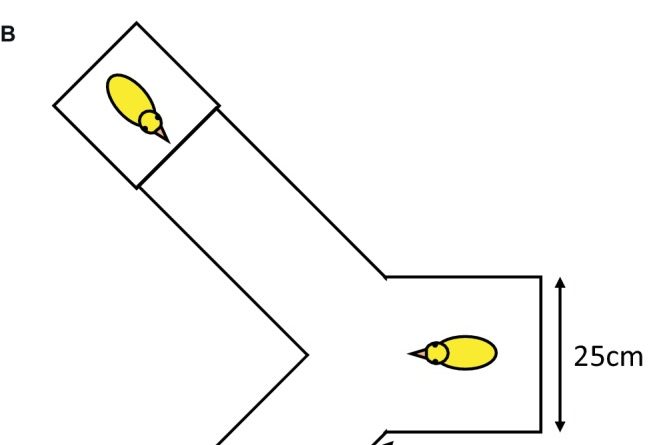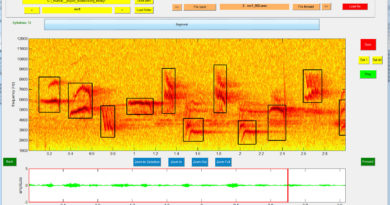Valproate exposure in ovo attenuates the acquisition of social preferences of young post-hatch domestic chicks
Embryonic exposure to valproic acid (VPA) is known to produce sociability deficits, resembling human autistic phenotypes, in several vertebrate species. Animals living in groups prefer the proximity of peers and have the ability to perceive and to respond to social signals for modifying behavior. Chicks of Galliform birds, known to display early preference behaviors, have been used extensively for adaptive learning studies. Young precocial birds seem to be useful models also for studying the effect of embryonic VPA treatment. Here, domestic chicken eggs were injected with sodium valproate (200 μl of 35 μmol/L solution) or with vehicle (distilled water) on the 14th day of incubation. After hatching, the chicks were tested for one-trial passive avoidance learning at day 1, vocalization due to isolation as a measure of stress level (day 2), approach preference to large versus small groups of age-matched conspecifics (day 5), and to those with normal versus blurred head features (day 7). In addition, we tested the preference of birds to conspecifics reared in group versus those reared in isolation (day 9), as well as the preference of chicks to familiar versus non-familiar conspecifics (day 21). Our findings confirm previous reports concerning an adverse effect of VPA on embryonic development, including a tendency for aborted or delayed hatching and, occasionally, for locomotor disorders in a small percentage of birds (eliminated from later studies). Otherwise, VPA treatment did not impair motor activity or distress level. Memory formation for the aversive stimulus and discrimination of colors were not impaired by VPA treatment either. Innate social predispositions manifested in approach preferences for the larger target group or for the birds with natural facial features remained unaffected by VPA exposure. The most prominent finding was attenuation of social exploration in VPA-exposed birds (expressed as the frequency of positional switches between two stimulus chicks after the first choice), followed by a deficit in the recognition of familiar conspecifics, unfolding at the end of the third week. Social exploration and recognition of familiar individuals are the key elements impaired at this stage. The results underline the importance of early social exploration in ASD.



